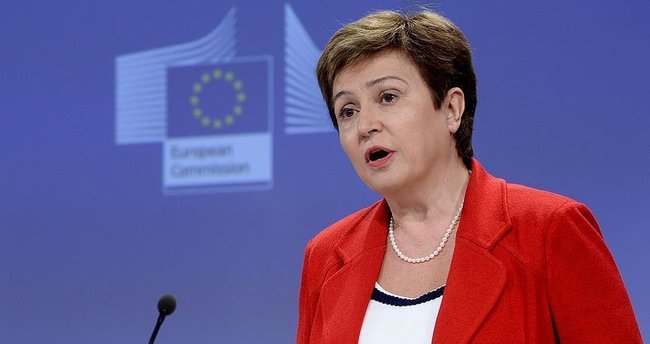11604
0
'SECOND WAVE' WARNING FROM IMF
'Second wave' warning was issued from the International Monetary Fund (IMF) President Kristalina Georgieva for the global economy.

Yazar: Tom Roberts
Yayınlanma: 16 Temmuz 2020 22:36
Güncellenme: 3 Mart 2026 03:59
'SECOND WAVE' WARNING FROM IMF
'Second wave' warning was issued from the International Monetary Fund (IMF) President Kristalina Georgieva for the global economy. “But we are not out of the woods yet. A second major global wave of the disease could lead to further disruptions in economic activity. Other risks include stretched asset valuations, volatile commodity prices, rising protectionism and political instability,” said Georgieva in a post published before the virtual meeting of G20 countries finance ministers and central bank heads this weekend. In her article,“The bottom line is that the pandemic is likely to increase poverty and inequality, further painfully exposing weaknesses in health systems, the precariousness of work and the challenging prospects for the young of accessing opportunities they desperately need.” Georgieva warned that the financial sector will face significant difficulties in a second wave, and consequently there will be job losses, bankruptcies and restructurings in the sector. Pointing out to rising global debt levels at the same time, Georgieva stressed, however, that it is early to stop financial aid due to current economic uncertainties. Georgieva said bankruptcies also are becoming more common as firms exhaust their cash buffers. And human capital is at risk. The education of over a billion learners across 162 countries has been disrupted, for example. “The bottom line is that the pandemic is likely to increase poverty and inequality, further painfully exposing weaknesses in health systems, the precariousness of work and the challenging prospects for the young of accessing opportunities they desperately need.” At the same time, said Georgieva, many jobs lost will never come back with the crisis triggering long-lasting changes in spending patterns. So workers must continue to be supported, including through reskilling, to help them move away from shrinking sectors and toward expanding ones. International cooperation is vital to minimise the duration of the crisis and ensure a resilient recovery, she said. Areas where collective action is key include guaranteeing adequate health supplies, avoiding further ruptures in the global trade system, ensuring that developing countries can finance critical spending needs and meet debt sustainability challenges, and strengthening the global financial safety net.İLGİLİ HABERLER





European stocks soared and focus shifted to German retail sales after Powell's speech!

Forex Signal For TRY/USD: Inflation Slowdown in November.

Forex Signal For GBP/USD: Bullish Trend Still Not Breaking While Recovery Continues.

Forex Signal For EUR/USD: Starry US Data Points to Higher Fed Increases.

Forex Signal For BTC/USD: Downside Continues as Bitcoin Recovery Moves Less.
En Popüler Haberler
Yorum Yap
Yorumlar
Henüz yorum yapan yok! İlk yorumu siz yapın...